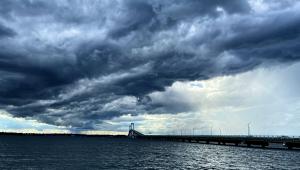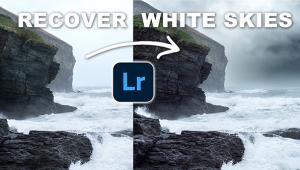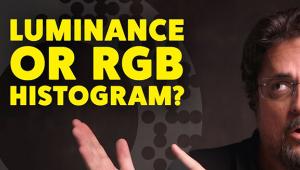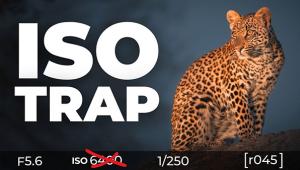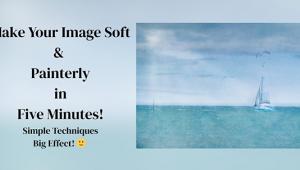Darkroom; Film, Paper, Chemistry, And Darkroom Gear
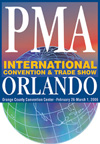 While
digital, as expected, dominated the show, silver-halide materials were still
to be found. These included three new films; faster films in single-use cameras;
a new 35mm film support to reduce static (and therefore dust); new archival
storage materials; the promise of new papers; and even--somewhat to my
surprise--a lonely enlarger on one of the Chinese stands.
While
digital, as expected, dominated the show, silver-halide materials were still
to be found. These included three new films; faster films in single-use cameras;
a new 35mm film support to reduce static (and therefore dust); new archival
storage materials; the promise of new papers; and even--somewhat to my
surprise--a lonely enlarger on one of the Chinese stands.
New Films
Fujifilm's two new professional films are T64 and Fujichrome Provia 400X.
Both are transparency films. T64, as you would guess from the name, is an ISO
64, tungsten-balanced film. It is ultra-fine-grained and makes use of all of
Fujifilm's most recent technology. Even though it is listed as a professional
film, remember that tungsten light is a really cheap, easy way to light subjects
from portraits to still lifes, so this film could be a good choice even if you
are an amateur just starting out and you want to try your hand at studio photography.
 |
|
|
Its faster brother, Fujichrome 400X, is a new, higher saturation ISO 400 film featuring improved skin tones. It can be pushed one stop (EI 800) or even two (EI 1600) if you are up against poor lighting or if you simply like the effect of fast films. Fuji has declared its intention to be the "last man standing" in film, but so has Ilford; only Kodak chairman Antonio Perez seems lukewarm about film, and his attitude--that the product which accounted last year for 46 percent of his company's turnover will soon be too small for him to take a personal interest--is not echoed elsewhere in the organization. I can only imagine that he was misquoted.
 |
|
|
Actions speak louder than words--even the chairman's words--and Kodak demonstrated their commitment in several ways. First, there was a new and improved Portra 800 color negative film. The improvements are in the usual areas: finer grain, more natural skin tones, and better color in low-light conditions. It also handles mixed lighting very well. A new 35mm film support is perhaps more important in minilabs than to the home darkroom user, who is more careful about dust, but it is a welcome innovation in any case. And Kodak now offers an ISO 800 film in a single-use camera--only to be trumped by Fuji with 1000 in the QuickSnap, available in Flash, Outdoor, and Colors. The 1/3 stop difference is not really significant, but it's a good marketing tool and it certainly does no harm. Both offer the added benefit of an extended flash range.
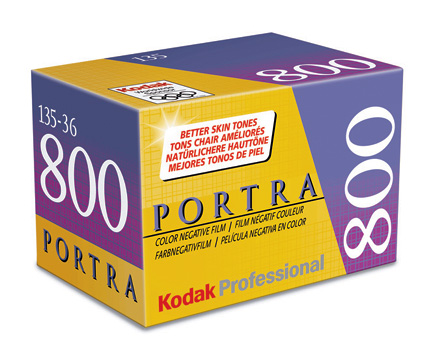 |
|
|
Archival Storage Materials
Print File, Bergger, and Itoya announced new archival storage materials and
portfolios. Print File's new Magna-Folios are archival portfolios with
magnetic closing, and there are five new metal-edge clamshell boxes that are
ideal for museums, picture libraries, or anywhere else that pictures are consulted
frequently but must be protected in storage. They also have CD storage materials
with extra pockets for thumbnail reference prints. Bergger has some very clever,
very protective portfolio boxes, the Art Armour line, in a wide range of print
sizes. And Itoya (distributed by the Argraph Corporation) uses a new archival
polypropylene material called Poly Glass which offers improved sleeve transparency
with archival protection. It's also worth knowing that Lineco has bought
Filmguard, so Pro-Line and Polyguard will now be repackaged under the Archivalware
label; that is in addition to Lineco's own new, drop-front archival storage
boxes in 1.5" and 3" depth.
 |
|
|
B&W Printing Papers
Although there were no new papers, at least one was promised. Kentmere's
Art Classic and Art Document had to be discontinued when the paper base on which
they were coated ceased to be available, but Garry Hume of Kentmere said that
they were actively looking for a new base to make replacements that are as similar
as possible. There are so few manufacturers of paper base left in the world
that when one mill decides to discontinue one line, there can be knock-on effects
throughout the industry. Elsewhere, the paper situation has stabilized. Agfa
is gone, but Ilford is doing better than even their more optimistic plans had
foreseen. Forte's future looks secure, too: during their recent troubles,
OmegaSatter briefly imported Foma but now they have reaffirmed their commitment
to Forte. Forte also coats for Bergger, of course. Oriental is still available,
too: if you can't find it, International Sales in Inglewood, California,
should be able to put you in touch with a retailer.
Although it's not exactly new, it's a reintroduction that many people
will welcome: Ilford's much-loved, back-printed post cards are now available
again (Multigrade IV RC Portfolio paper).
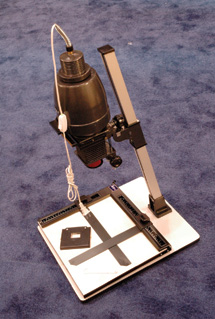 |
|
|
Integra is supplying Agfa lab chemicals but I am not sure how much (if any)
of the amateur chemical line will be available. There was not even a website
at the time of PMA but a Google search should soon turn something up by the
time this is published.
As for the enlarger, this was on the Qihe stand. It was pretty basic, but it
was also soundly engineered with an angled column, rack-and-pinion head drive,
standard 39mm lens mount, filter drawer, and 6x6cm holder with 35mm insert.
When the supply of silly-cheap (or free) used enlargers dries up, it looks as
though new ones will still be available from China.



